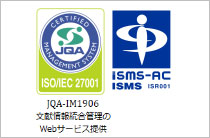ホームIMICライブラリMMWR抄訳2021年(Vol.70)45歳以上の無給介護者における主観的な認知機能低下・・・
2021/11/19Vol. 70 / No. 46
MMWR70(46):1591-1596
Prevalence and Characteristics of Subjective Cognitive Decline Among Unpaid Caregivers Aged ≥45 Years — 22 States, 2015–2019
45歳以上の無給介護者における主観的な認知機能低下の有病率および特徴 ― 22州、2015年~2019年
アメリカの成人の約20%が持病や障害のある家族や友人をサポートする無給の介護者(介護者)であり、介護の利点はあるが、介護者の身体的・精神的健康に悪影響を与える可能性がある。投薬や金銭管理のように、介護者が提供する支援の多くが認知能力に頼っているが、介護者の認知機能についてはほとんど知られていない。主観的な認知機能低下(SCD:自己申告による過去1年間に悪化または頻繁に発生した混乱や記憶喪失の経験)は、介護者の有害な健康転帰に対するリスク、介護者が提供するケアの質に影響する可能性がある。CDCは、2015年~2019年のBehavioral Risk Factor Surveillance Systemの22州のデータの横断分析により、45歳以上の介護者におけるSCDについて分析した。2015年~2019年、22州では45歳以上のアメリカ成人の23.0%(推定12,693,000人)が介護者であった。介護者全体のSCD有病率は12.6%であり、州別では、9.8%(ニュージャージー州)~17.3%(ルイジアナ州)であったのに対し、非介護者のSC有病率は10.2%であった。非介護者と比較して、介護者のSCD有病率は、45~64歳、男性、非ヒスパニック系白人、就業者、慢性疾患のある人で高かった。SCDのない介護者と比較してSCDのある介護者では、慢性疾患あり、うつ病の病歴、健康状態が「まあまあ」または「悪い」、過去30日間に14日以上の身体的健康不良あり、過去30日間に14日以上の精神的健康不良あり、過去30日間に定期的な活動が健康状態により14日以上妨げられた人が多い傾向であった。家庭状況、介護の期間/タイプ、アルツハイマー病、認知症、その他の認知障害と診断された要介護者には、SCDの有無による差はなかった。介護者の認知的健康と提供するケアの種類を理解することは、介護者と要介護者の健康、幸福、独立性を維持するために重要である。医療専門家は、介護者に介護者自身の健康状態を管理する必要性について意識を高めさせることにより、患者とその患者の介護者をサポートすることが可能である。
References
- Edwards VJ, Bouldin ED, Taylor CA, Olivari BS, McGuire LC. Characteristics and health status of informal unpaid caregivers—44 states, District of Columbia, and Puerto Rico, 2015–2017. MMWR Morb Mortal Wkly Rep 2020;69:183–8. PMID:32078592 <https://doi.org/10.15585/mmwr.mm6907a2>
- Committee on Family Caregiving for Older Adults; Board on Health Care Services; National Academies of Sciences, Engineering, and Medicine. Families caring for an aging America. Schulz R, Eden J, eds. Washington, DC: The National Academies Press (US); 2016. <https://www.ncbi.nlm.nih.gov/books/NBK396401/>
- Schulz R, Sherwood PR. Physical and mental health effects of family caregiving. Am J Nurs 2008;108(Suppl):23–7, quiz 27. PMID:18797217 <https://doi.org/10.1097/01.NAJ.0000336406.45248.4c>
- Miyawaki CE, Bouldin ED, Taylor CA, McGuire LC. Baby boomers as caregivers: results from the Behavioral Risk Factor Surveillance System in 44 states, the District of Columbia, and Puerto Rico, 2015–2017. Prev Chronic Dis 2020;17:E80. PMID:32790608 <https://doi.org/10.5888/pcd17.200010>
- Taylor CA, Bouldin ED, McGuire LC. Subjective cognitive decline among adults aged ≥45 years—United States, 2015–2016. MMWR Morb Mortal Wkly Rep 2018;67:753–7. PMID:30001562 <https://doi.org/10.15585/mmwr.mm6727a1>
- Ortman JM, Velkoff VA, Hogan H. An aging nation: the older population in the United States. Washington, DC: US Department of Commerce, US Census Bureau; 2014. <https://www.census.gov/prod/2014pubs/p25-1140.pdf>
- Alzheimer’s Association. 2018 Alzheimer’s disease facts and figures. Alzheimers Dement 2018;14:367–429. <https://doi.org/10.1016/j.jalz.2018.02.001>
- Kaup AR, Nettiksimmons J, LeBlanc ES, Yaffe K. Memory complaints and risk of cognitive impairment after nearly 2 decades among older women. Neurology 2015;85:1852–8. PMID:26511452 <https://doi.org/10.1212/WNL.0000000000002153>
- Valech N, Mollica MA, Olives J, et al. Informants’ perception of subjective cognitive decline helps to discriminate preclinical Alzheimer’s disease from normal aging. J Alzheimers Dis 2015;48(Suppl 1):S87–98. PMID:26445275 <https://doi.org/10.3233/JAD-150117>
- Perrotin A, de Flores R, Lamberton F, et al. Hippocampal subfield volumetry and 3D surface mapping in subjective cognitive decline. J Alzheimers Dis 2015;48(Suppl 1):S141–50. PMID:26402076 <https://doi.org/10.3233/JAD-150087>
Copyright © 2013 International Medical Information Center. All Rights Reserved.












